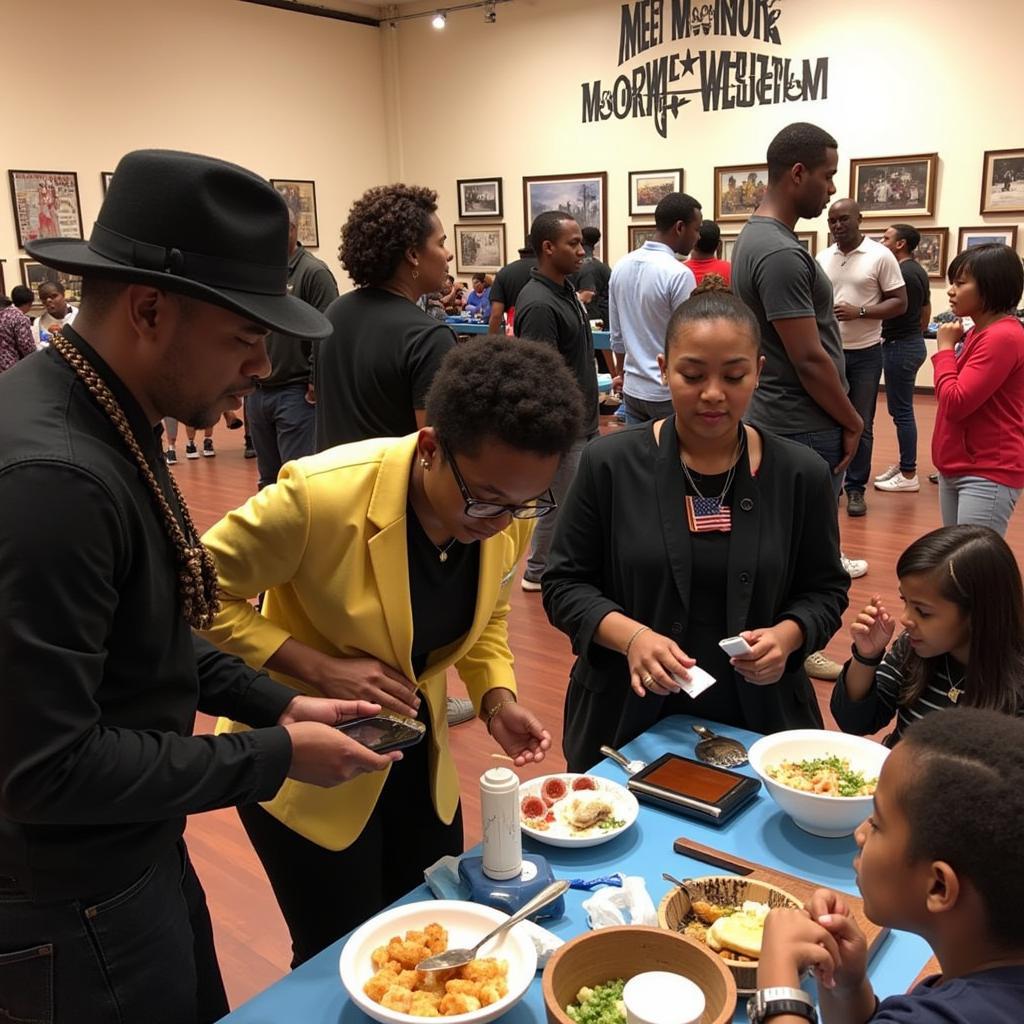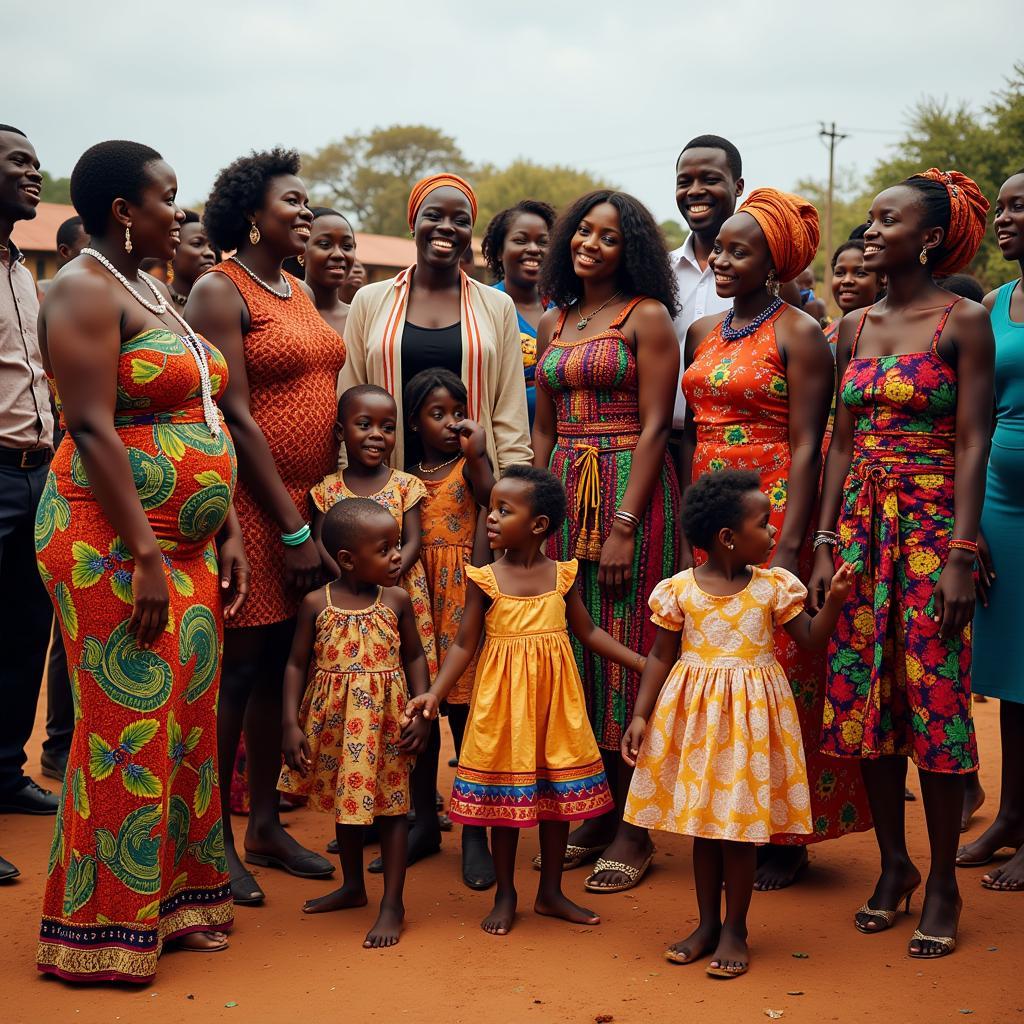Exploring the World of African Jokes
African Jokes offer a unique window into the continent’s diverse cultures, languages, and ways of life. These jokes, passed down through generations, are more than just a source of laughter; they are a reflection of shared experiences, societal norms, and a clever way to address complex issues with a touch of humor. From witty wordplay to observational humor about everyday life, African jokes provide a rich tapestry of comedic storytelling. Let’s delve into this vibrant world of humor and discover the wit and wisdom behind African jokes.
Understanding the Humor in African Jokes
African humor often relies on clever wordplay, puns, and metaphors. It’s not always about the punchline, but the journey of getting there. Many jokes involve trickster characters, animal fables, or humorous situations that highlight the absurdities of life. The humor is often subtle and requires an understanding of the cultural context to fully appreciate the joke. It’s not just about laughing at something, but laughing with each other, sharing a moment of lightheartedness and connection. For instance, jokes about animals often reflect cultural beliefs and values associated with those animals.
African jokes and humour offer a glimpse into a wide range of comedic styles and storytelling traditions across the continent.
One common theme is the clever use of irony and sarcasm. This allows for commentary on social situations, political issues, or even family dynamics, all while maintaining a playful tone.
Types of African Jokes
African jokes span a variety of categories, reflecting the continent’s diverse cultural landscape. There are jokes about family life, relationships, animals, and everyday occurrences. Some popular types include:
- Trickster Tales: These jokes often feature characters like Anansi the Spider (West Africa) or Hare (East Africa), who use their wit and cunning to outsmart others.
- Proverbs and Riddles: These offer wisdom and life lessons disguised as humorous puzzles, encouraging critical thinking and problem-solving skills.
- Situational Humor: Jokes about everyday experiences, often highlighting relatable situations and cultural nuances.
- Satirical Jokes: These jokes cleverly poke fun at societal norms, political figures, or current events, providing a platform for social commentary.
Many of these jokes are passed down orally, evolving and adapting over time, making them a living testament to the dynamic nature of African storytelling. African jokes and riddles provide an excellent example of how wit and wisdom are intertwined in African oral traditions.
The Cultural Significance of African Jokes
Beyond their entertainment value, African jokes play a crucial role in preserving cultural heritage, transmitting values, and strengthening social bonds. They offer a means of social commentary, a way to address sensitive topics, and a tool for teaching important life lessons.
What is the purpose of African jokes? They serve multiple purposes, from entertainment to social commentary, and even the transmission of cultural values.
Sharing jokes is a way to connect with others, build rapport, and create a sense of belonging. It’s a shared experience that transcends age, gender, and social status.
African American Jokes and the Diaspora
The African diaspora has also contributed significantly to the world of humor. African American jokes, often rooted in the experiences of slavery and the struggle for civil rights, offer a unique perspective on resilience, identity, and social justice. These jokes often use humor to address difficult topics and provide a sense of catharsis.
African american jokes reflect the unique historical and cultural experiences of this community, offering powerful insights into issues of identity, resilience, and social justice. These jokes often utilize wordplay and irony to address complex and sensitive topics.
What distinguishes African American humor? It often draws on historical experiences, cultural nuances, and a distinct linguistic style, creating a unique form of comedic expression.
The Power of Laughter: Connecting Through Humor
Laughter is a universal language, and African jokes, in all their diverse forms, remind us of the power of humor to connect us, teach us, and heal us. They are a testament to the resilience, creativity, and wisdom of African cultures.
African accent jokes can be a delicate area. It’s crucial to approach humor related to accents with sensitivity and respect, avoiding stereotypes and generalizations. Humor should be inclusive and celebrate diversity, not perpetuate harmful prejudices.
Conclusion: Celebrating the Richness of African Humor
African jokes are more than just a source of amusement; they are a reflection of the continent’s rich cultural heritage, a testament to its resilience, and a celebration of its diverse people. By exploring the world of African jokes, we gain a deeper understanding of the continent’s history, values, and unique perspectives. From trickster tales to satirical commentary, African jokes offer a valuable window into the human experience, reminding us of the power of laughter to connect us all.
FAQ:
- What are some common themes in African jokes?
- How do African jokes reflect cultural values?
- What is the role of trickster characters in African folklore?
- How does humor help to build community and social bonds?
- Where can I find more examples of African jokes and riddles?
- What is the significance of oral tradition in preserving African humor?
- How do African jokes differ from other forms of humor around the world?
Other Related Topics:
- African Storytelling Traditions
- The Role of Humor in Social Commentary
- Cross-Cultural Communication Through Jokes
Need further assistance? Contact us 24/7: Phone: +255768904061, Email: kaka.mag@gmail.com or visit us at Mbarali DC Mawindi, Kangaga, Tanzania.



